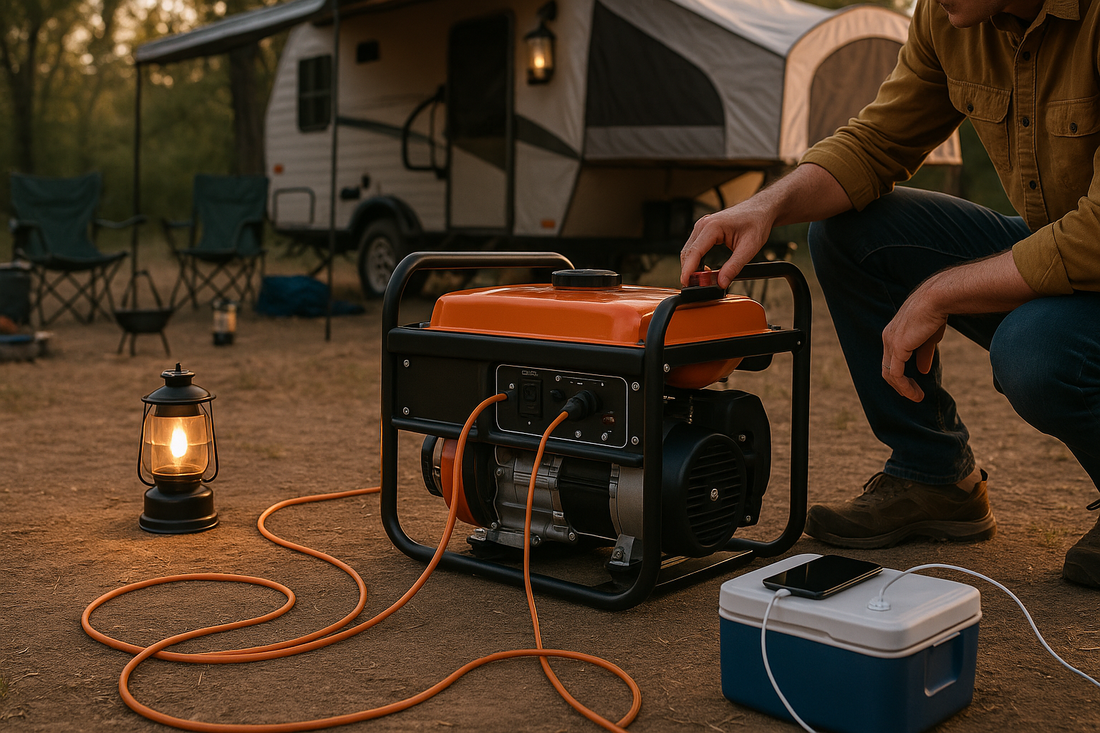
Portable Generators for Camping: What You Need to Know
Share
When you’re heading out for a camping trip, a portable generator can make all the difference between a rugged experience and a comfortable outdoor adventure. From powering lights and cooking appliances to charging your phone and running a mini-fridge, these generators keep your essentials running smoothly. But before you buy or pack one, there are a few important things you should know.
1. Why You Might Need a Portable Generator for Camping
Camping is about disconnecting from the hustle of everyday life—but not necessarily from electricity. A portable generator can help you:
-
Charge small electronics like phones, cameras, and GPS devices.
-
Power camping appliances such as portable stoves, coffee makers, or fans.
-
Run medical devices that require electricity.
-
Provide lighting for evening or overnight stays.
For RV campers, a portable generator is often a must-have to keep your comfort systems running.
2. Types of Portable Generators
There are two main types of portable generators for camping:
a. Conventional Generators
These are gasoline-powered and produce consistent power output. They’re generally less expensive but noisier and less fuel-efficient than inverter models.
b. Inverter Generators
Perfect for camping, inverter generators are quieter, lighter, and produce cleaner power—safe for sensitive electronics. They adjust engine speed based on power demand, saving fuel and reducing noise.
3. Key Features to Look For
When shopping for the best portable generator for camping, consider:
-
Power Output (Watts): Determine what devices you’ll be running. Small electronics might need 100–500W, while RVs or appliances might require 2000–3000W.
-
Noise Level: Look for models rated under 60 dB for peaceful campsites.
-
Fuel Type: Gasoline is common, but dual-fuel (gas + propane) generators offer flexibility.
-
Portability: Choose lightweight models with handles or wheels.
-
Runtime: Check how long the generator runs on a full tank—8–12 hours is ideal for overnight trips.
4. Safety Tips for Using Generators While Camping
Using a generator in nature requires caution. Always:
-
Run it outdoors and at least 20 feet away from your tent or RV to prevent carbon monoxide buildup.
-
Keep it dry—avoid using it in rain or near water.
-
Cool before refueling to prevent fire hazards.
-
Use surge protectors when powering electronics.
-
Respect campground noise regulations.
5. Eco-Friendly and Solar Alternatives
If you want a cleaner, quieter option, consider solar-powered generators. These use rechargeable batteries powered by solar panels—no fumes, no noise, and no fuel. While they offer less wattage, they’re perfect for minimalist campers or short trips.
6. Top Brands to Consider
Some of the most trusted names in portable camping generators include:
-
Honda – Known for ultra-quiet and reliable inverter generators.
-
Westinghouse – Great balance between power and affordability.
-
Jackery & Goal Zero – Leaders in solar power stations.
-
Champion Power Equipment – Excellent dual-fuel versatility.
7. Final Thoughts
A portable generator for camping can turn your outdoor getaway into a comfortable and convenient experience. Choose one that fits your power needs, prioritize quiet and efficient models, and always follow safety guidelines. Whether you go with gas, dual-fuel, or solar, the right generator ensures you stay powered up no matter where your adventures take you.
